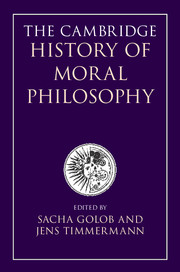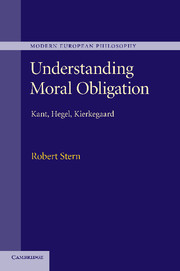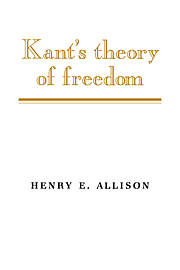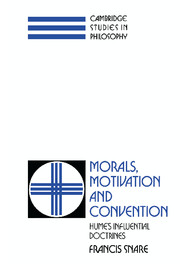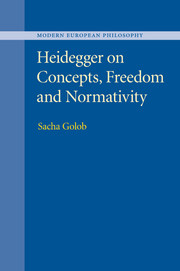The Cambridge History of Moral Philosophy
With fifty-four chapters charting the development of moral philosophy in the Western world, this volume examines the key thinkers and texts and their influence on the history of moral thought from the pre-Socratics to the present day. Topics including Epicureanism, humanism, Jewish and Arabic thought, perfectionism, pragmatism, idealism and intuitionism are all explored, as are figures including Aristotle, Boethius, Spinoza, Hobbes, Hume, Kant, Hegel, Mill, Nietzsche, Heidegger, Sartre and Rawls, as well as numerous key ideas and schools of thought. Chapters are written by leading experts in the field, drawing on the latest research to offer rigorous analysis of the canonical figures and movements of this branch of philosophy. The volume provides a comprehensive yet philosophically advanced resource for students and teachers alike as they approach, and refine their understanding of, the central issues in moral thought.
- An accessible yet sophisticated survey of the history of Western and related moral philosophy, examining the roles of key thinkers and engaging with the surrounding debates
- Leading experts make use of the most up-to-date research in the field, offering new perspectives on central arguments and exploring the development and spread of Western moral philosophy
- Individual chapters are dedicated to the major philosophical movements and figures, enabling readers to focus on particular schools of moral thought as well as gaining a broader overview
Product details
December 2017Adobe eBook Reader
9781108215558
0 pages
This ISBN is for an eBook version which is distributed on our behalf by a third party.
Table of Contents
- List of contributors
- Acknowledgements
- Introduction Sacha Golob and Jens Timmermann
- 1. Ethics before Socrates Catherine Rowett
- 2. Socrates and Sophists A. G. Long
- 3. Plato James Warren
- 4. Aristotle Michael Pakaluk
- 5. Epicureanism and hedonism Voula Tsouna
- 6. Stoicism Brad Inwood
- 7. Ancient skepticism Katja Vogt
- 8. Neo-Platonism Alexandrine Schniewind
- 9. Early Christian ethics: killing the innocent Sarah Byers
- 10. Boethius, Abelard and Anselm John Marenbon
- 11. Medieval Jewish ethics Tamar Rudavsky
- 12. Moral philosophy in the medieval Islamicate world Anna Akasoy
- 13. 'Christian Aristotelianism'? Albert the Great and Thomas Aquinas Tobias Hoffmann and Jörn Müller
- 14. Duns Scotus and William of Ockham Tobias Hoffmann
- 15. Humanism Sabrina Ebbersmeyer
- 16. The Protestant Reformation Jesse Couenhoven
- 17. Descartes's provisional morality Lisa Shapiro
- 18. Hobbes Sharon Lloyd
- 19. The Cambridge Platonists Sarah Hutton
- 20. Bayle Jean-Luc Solère
- 21. Leibniz Gregory Brown
- 22. Spinoza Stephen Nadler
- 23. Pascal Desmond M. Clark
- 24. Locke and Butler Stephen Darwall
- 25. Shaftesbury, Hutcheson, and the moral sense James A. Harris
- 26. Hume Paul Guyer
- 27. Smith and Bentham Craig Smith
- 28. Rousseau Susan Meld Shell
- 29. Rationalism and perfectionism Stefano Bacin
- 30. Kant Jens Timmermann
- 31. Fichte Allen Wood
- 32. Hegel Dudley Knowles
- 33. Mill Christopher MacLeod
- 34. Schopenhauer Alistair Welchman
- 35. Kierkegaard Zach Manis
- 36. American transcendentalism Russell Goodman
- 37. Nietzsche Lawrence Hatab
- 38. Marxism Jeffrey Reiman
- 39. Sidgwick Katarzyna de Lazari
- 40. Pragmatism Cheryl Misak
- 41. British idealism Robert Stern
- 42. Ethical intuitionism Philip Stratton-Lake
- 43. Husserl and phenomenological ethics Nicolas de Warren
- 44. Ethics in Freudian and post-Freudian psychoanalysis Edward Harcourt
- 45. Noncognitivism: from the Vienna circle to the present day John Eriksson
- 46. The Frankfurt school Fred Rush
- 47. Heidegger Sacha Golob
- 48. Sartre Sebastian Gardner
- 49. French ethical philosophy since the 1960s Todd May
- 50. Wittgenstein's ethics and Wittgensteinian moral philosophy David Levy
- 51. Anti-theory Simon Robertson
- 52. Discourse ethics Peter Niesen
- 53. Decision theory Ben Eggleston
- 54. Rawls Katrin Flikschuh.

